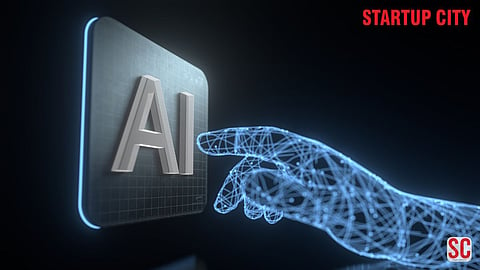

What is Artificial Intelligence?
Artificial Intelligence (AI) is a branch of computer science focused on developing smart machines capable of performing tasks that typically require human intelligence. It involves a set of techniques that enable machines to imitate human cognition, including visual perception, speech recognition, decision-making, and language processing. AI is applied across various industries, including manufacturing, business, law, and healthcare.
In essence, AI can also be associated with machine learning, where computers acquire the ability to learn and improve from data patterns. The most advanced AI systems can analyze complex datasets, recognize patterns, and make predictions or solve problems based on acquired knowledge.
Examples of AI Applications:
Manufacturing Robots
Self-Driving Cars
Smart/Digital Assistants
Automated Financial Investing
Social Media Monitoring
Conversational Marketing Bots
Natural Language Processing (NLP) Tools
Facial Detection and Recognition
Search and Recommendation Algorithms
Chatbots
How Does AI Work?
AI operates through two primary components: a neural network and a learning algorithm. These elements work together to mimic the human brain's learning process. As AI systems process new information, they refine their understanding and enhance their ability to perform tasks more efficiently.
Types of Artificial Intelligence
AI is categorized into two main types: Narrow AI and General AI.
1. Narrow AI (Weak AI) Narrow AI, also known as weak AI, is designed for specific tasks and operates within a limited scope. These AI systems function without human supervision but are restricted to predefined functions. Examples include Deep Blue (IBM's chess-playing computer), voice assistants like Siri, self-driving cars, and data analysis tools. Narrow AI is commonly used in businesses to optimize operations and enhance efficiency.
2. General AI (Strong AI) General AI, or strong AI, refers to an advanced form of intelligence that can perform a wide range of tasks across different disciplines. Unlike narrow AI, strong AI aims to mimic or surpass human intelligence, allowing machines to think, learn, and make decisions independently. While this level of AI does not yet exist, it remains a prominent theme in science fiction and ongoing research. The ultimate goal is to create machines capable of reasoning, problem-solving, and autonomous decision-making without human intervention.
The Role of Artificial Intelligence
AI plays a crucial role in business by improving efficiency, reducing costs, and providing a competitive edge. Key benefits include:
Automating repetitive tasks, allowing employees to focus on creative and strategic roles.
Enhancing customer service through AI-driven chatbots.
Processing vast amounts of data to detect trends and patterns for informed decision-making.
Streamlining business operations, from financial management to day-to-day activities.
By leveraging AI, companies can enhance the quality of customer interactions, boost productivity, and refine their service offerings.
How AI Impacts Business Profitability
AI-driven technologies contribute significantly to business profitability by optimizing various aspects of operations. Some key ways AI enhances profitability include:
Inventory Management: AI helps businesses maintain optimal inventory levels, reducing waste and ensuring efficient stock replenishment.
Employee Training & Development: AI-powered training tools reduce costs and enhance the learning experience.
Project Management: AI minimizes human errors and improves workflow efficiency.
Regulatory Compliance: AI simplifies compliance processes, making them more cost-effective.
Sales & Marketing: AI enhances sales funnels through automation, predictive analytics, and customer engagement, leading to increased conversion rates.
Productivity Enhancement: AI automates manual tasks, freeing employees to focus on higher-value activities and reducing workforce turnover.
Data Accuracy: AI collects and processes real-time data more precisely than human employees, leading to better decision-making.
How AI is Transforming the World
Artificial Intelligence is reshaping multiple aspects of our lives, influencing work, leisure, and communication. Some key transformations driven by AI include:
Chatbots revolutionizing customer service.
Self-driving cars enhancing road safety.
Smart home technology streamlining daily tasks.
AI-powered medical diagnostics reducing healthcare costs.
Job creation and career evolution due to AI-driven industries.
Beyond these, AI is driving innovation by automating monotonous tasks, enabling personalized experiences, improving healthcare, enhancing quality of life, and facilitating better decision-making through data-driven insights.
How to Use AI in Your Business
AI has become accessible to businesses of all sizes, offering solutions for various operational challenges. Here are five key ways AI can be leveraged for business success:
Customer Service & Support: AI-powered chatbots provide instant, 24/7 assistance, enhancing customer experience while reducing operational costs.
Personalized Content Creation: AI analyzes user preferences to generate customized content, improving engagement and marketing effectiveness.
Administrative Task Automation: Automating emails, scheduling, and other repetitive tasks allows employees to focus on strategic initiatives.
Process Automation: AI streamlines labor-intensive tasks such as talent acquisition and data collection, optimizing resource allocation.
Sales Forecasting & Product Recommendations: AI-driven analytics predict sales trends, optimize stock levels, and personalize product recommendations for customers.
By integrating AI, businesses can boost efficiency, enhance customer satisfaction, and stay ahead in an increasingly competitive market.